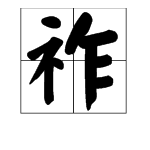“Benchmark”是什么意思?
的有关信息介绍如下:
benchmark 读音为:英[ˈbentʃmɑ:k] 美[ˈbentʃmɑ:rk]。释义如下:
n. 基准,参照; 标准检查程序; 水准标;
vt. 检测(用基准问题测试)。
例句:
The truck industry is a benchmark for the economy.
卡车业是衡量经济的一个基准。
We ran a rough benchmark.
我们运行了一个粗略的基准。
This is not a TPC-H benchmark result.
这不是一个TPC-H的基准测试结果。
The benchmark interest rate is effectively zero, but that leaves quantitative easing and other unconventional measures.
基准利率实际上已经为零,但这留下了定量宽松和其它非常规措施。
Only a portion of this system was allocated for this benchmark.
这个系统只有一部分被分配给这个基准测试。
The PBC administers two different benchmark interest rates: one year lending and one year deposit rate.
中国人民银行负责管理两个不同的基准利率:一年期贷款利率和一年期存款利率。
But China surpassed even this benchmark last year.
但去年中国甚至超过了这一基准。
Now, the driver should be able to create the agents and start the benchmark.
现在,驱动程序应该可以创建代理和启动基准了。
Traders and analysts are split over whether China will abandon the benchmark.
在中国是否会放弃基准协议的问题上,交易员和分析师观点不一。
There is a peculiarity with this benchmark that I have no explanation of.
这个基准测试有一个我还没有解释的特性。



